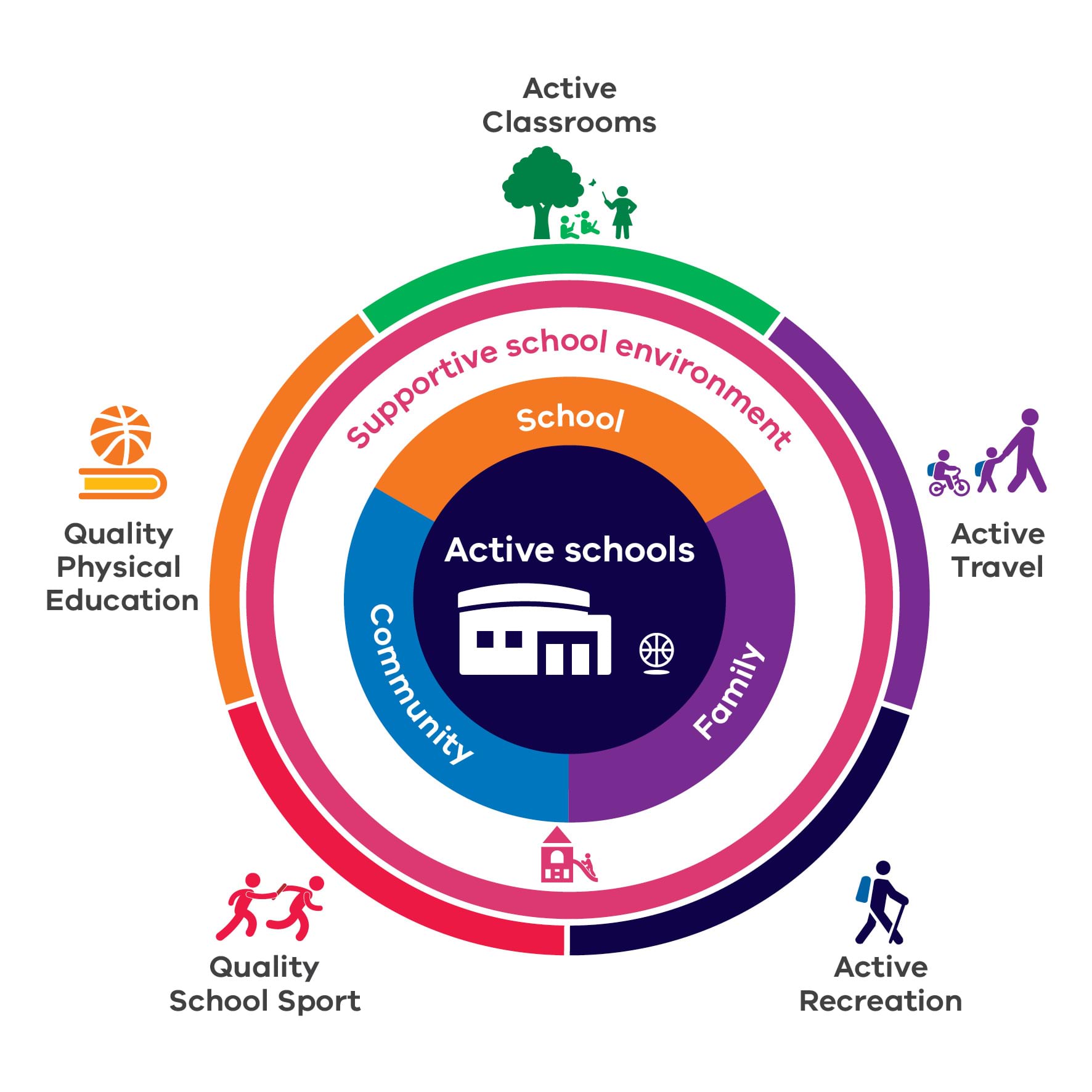An active school encourages physical activity through a whole school approach that goes beyond traditional physical education and sport to promote physical activity at every opportunity.
Understanding the framework
The active schools framework describes the relationship between the active school priorities that support a student to be active.
These key priorities recognise there is no single solution to shifting inactivity; it takes a multifaceted effort. The priorities of an active school are:
- quality physical education(opens in a new window)
- quality school sport(opens in a new window)
- active classrooms(opens in a new window)
- active travel(opens in a new window)
- active recreation(opens in a new window).
A supportive school environment(opens in a new window) that provides space and encourages students to be active is also required to shift physical activity outcomes.
The core of the framework acknowledges the importance of schools, family and community as influences of a student's level of physical activity. Families and communities are crucial in supporting students to continue their participation in physical activity beyond the school environment.
An active school is a school that values and commits to promoting physical activity through curriculum, general school life and the local community, and can support a child to become physically literate(opens in a new window) and active for life.
An active school encourages physical activity through a whole-school approach, which goes beyond traditional physical education and sport, to promote physical activity at every opportunity throughout the day.
This toolkit provides guidance and practical strategies that schools and teachers can use to help them become an active school.
Many schools may already be taking action in some of these areas, but many also need support to enhance their current approach.
The active schools framework will support schools to begin this conversation and start taking action. It also provides guidance to stakeholders in the sector, the community and government when making decisions on physical activity interventions.
Updated


